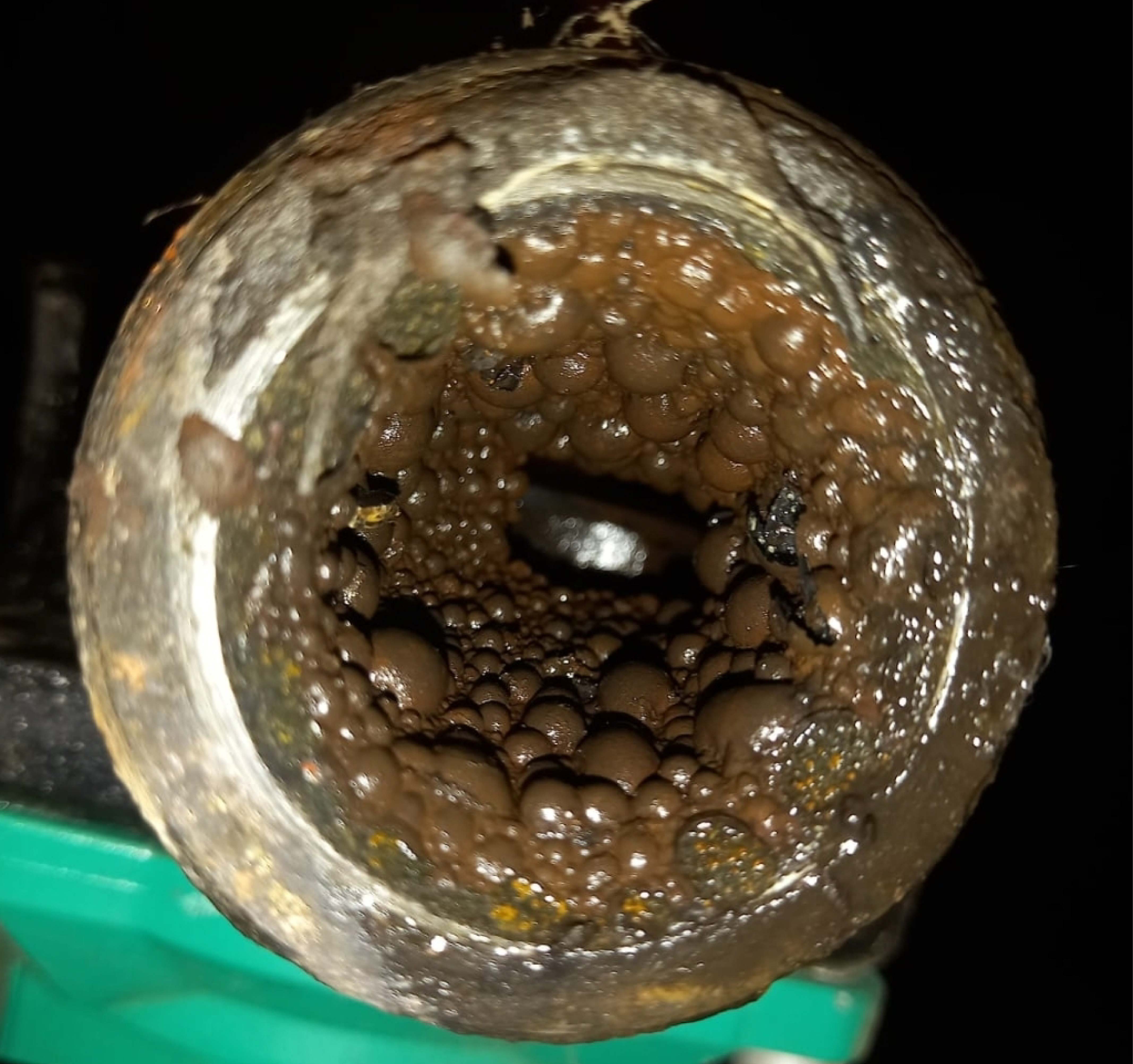Water is the lifeblood of any low carbon heat system or heat network, yet it is often the most overlooked component.
Poor water quality can silently degrade system performance, shorten equipment lifespan, lead to costly failures, and potentially invalidate manufacturer warranties. From the moment a system is filled, untreated water begins interacting with metals, oxygen, and heat - setting the stage for corrosion, scaling, and sludge formation. In our blog, we outline what neglect can cost, outline water treatment methods and why we believe VDI 2035 Compliance - a demineralised approach - is the standard to reach for.
The Hidden Cost of Neglect
The early signs of water quality issues - cool radiators, ticking pipes, rising energy bills - are subtle. But within months, these escalate to clogged pumps, overheating boilers, and sensor failures. For example, without proper treatment, the life expectancy of a biomass system can plummet from 15–20 years to just 5–8.
What's more, the financial cost of remediating the damage caused by water quality neglect is typically very high. In our experience of one project, a large estate house, the cost was in the range of £20,000.

Understanding Water Treatment Methods
Effective water treatment is about more than just protecting the boiler - it's about safeguarding the entire heating system, including pumps, valves, and heat exchangers. There are two main approaches:
1. Chemical Treatment
Pros: Can be tailored to specific system needs; inhibitors can prevent corrosion.
Cons: Requires careful monitoring and regular testing.
2. Demineralisation (Resin Filtration)
Pros: Reduces electrical conductivity, allowing higher oxygen tolerance without corrosion; aligns with VDI 2035 standards.
Cons: Resin needs periodic replacement; initial setup may be more involved.
The Case for VDI 2035 Compliance
VDI2035 is a German standard that sets strict parameters for water quality in heating systems. Reheat’s approach is built around meeting these standards through:
- Annual Testing: If water meets VDI2035, no action is needed beyond yearly checks
- Targeted Treatments:
High pH: Use of HWR units with sacrificial anodes
High Conductivity: Resin filtration to reduce mineral content
Both Issues: Combined treatment with digital monitoring for ongoing protection
- Inhibitor Testing: Ensures chemical treatments don’t interfere with mechanical solutions
This proactive strategy prevents corrosion, scaling, and premature component failure - saving time, money, and energy
A Note on Water Softeners
While water softeners are commonly used to reduce hardness, they don’t remove all minerals and may not sufficiently lower electrical conductivity. This makes them less suitable for systems where VDI 2035 compliance is the goal. Demineralisation offers a more robust solution by removing a broader spectrum of minerals and ensuring long-term system health.
Ultimately, Water treatment isn’t optional, it’s essential. Whether through chemical inhibitors or demineralisation, maintaining water quality protects your investment, improves efficiency, and extends the life of your low carbon heating system or heat network. Reheat’s commitment to VDI 2035 ensures that every system we treat is built to last.
Future proofing water quality for heat networks
The CIBSE CP1: Heat Networks Code of Practice (2020) plays a pivotal role in shaping the technical standards for heat networks in the UK, particularly as the sector prepares for upcoming regulatory changes under the Heat Network Technical Assurance Scheme (HNTAS). One of the key areas addressed in CP1 is water quality management, which is essential for maintaining system efficiency, reliability, and safety.
As the UK moves toward formal regulation of heat networks, CP1’s recommendations on water quality are increasingly being viewed not just as best practice, but as baseline compliance requirements.
These include maintaining appropriate pH levels, controlling dissolved oxygen, and implementing robust filtration and chemical dosing regimes to prevent corrosion, scaling, and microbiological growth.
The upcoming regulations, being developed by the Department for Energy Security and Net Zero (DESNZ) will introduce mandatory technical standards through HNTAS Technical Standard 1 (TS1). These standards will formalise water-quality requirements derived from the principles set out in CP1 (2020), ensuring that system design, installation, and operation achieve verifiable and consistent water-quality performance across regulated heat networks.
How Reheat can help you achieve your Water Quality goals
Reheat offers a comprehensive suite of water treatment services tailored to low-carbon heating systems:
- Annual Water Testing: Ensures ongoing compliance with VDI 2035 standards
- HWR Units: Installed when pH levels are too high, using sacrificial anodes to stabilise water chemistry
- Resin Filtration: Reduces electrical conductivity by removing minerals, targeting micro siemens readings below 100
- Demineralising Fill Units: Automatically treat any new water added to the system, with digital monitoring to alert when resin needs replacement
- Combined Treatment Solutions: For systems with both high pH and conductivity, Reheat installs integrated solutions to maintain optimal water quality
- Inhibitor Testing and System Flushing: Identifies and removes chemical inhibitors that could interfere with treatment effectiveness
These services are designed to protect your investment, improve system efficiency, and extend the operational life of your low carbon heating system.






